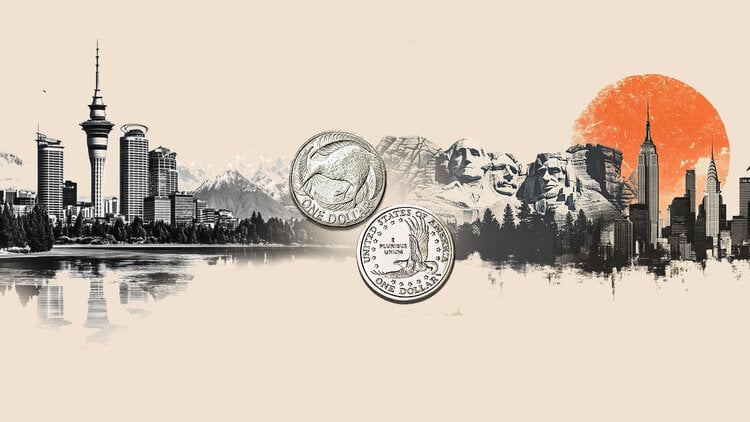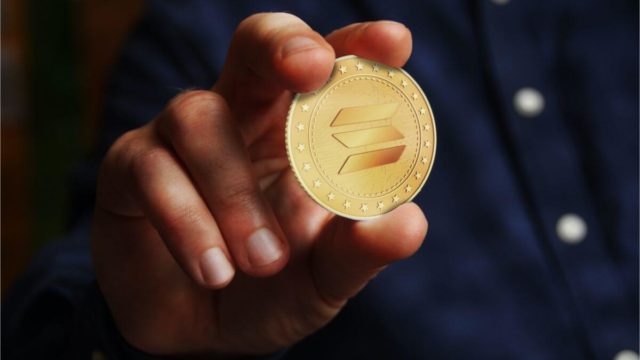By Matina Harkoftakis
The Greek clothing industries have been trying to lay the foundations of a dynamic comeback recently, which admittedly have been through fire and iron in the previous years, while they continue to fight their own battle in order to respond to the demanding conditions of the market. On the one hand, the deep scars left by the ten-year economic crisis and on the other hand, the high competition from the large multinational chains, there are not a few bright names in the sector which in the past were the protagonists of domestic retail, but were driven to the brink .
In any case, after a period of restructuring and clarification, Greek companies, both those that managed to survive and new players, who made their entrance bringing an air of renewal, have already begun, since the end of the previous decade, to move in growth trajectory with vehicle extroversion and electronic sales. The only dissonance in this course was 2020, the first year that the coronavirus pandemic appeared, creating unprecedented conditions with closed shops and restrictive measures. The new data essentially forced the taking of measures and the implementation of investments in the area of digitization, as during a significant period of time clothing companies remained alive exclusively through the electronic sales channel.
Greek clothing is recovering
During 2021, which was characterized as a year of gradual recovery, the Greek outfit managed to cover to a significant extent the lost ground, laying the foundations for a dynamic 2022, a fact that is also reflected in the numbers. In particular, according to the data recently published by the Association of Knitting & Ready-made Clothing Enterprises (SEPEE), during the first 4 months of the current year, the retail sales of the Greek clothing and textile industry recorded an increase of 60% compared to the corresponding period last year , partially offsetting losses from the health crisis lockdowns. This increase translates into a value that reached 688 million euros, compared to 429 million euros in the first quarter of 2021, however, during which shops either remained closed or operated with strict restrictive measures.
With a positive sign, exports
The positive momentum of last year, where retail sales in the domestic market closed at 2.6 billion euros, showing an increase of 43.4% with a parallel improvement in the industrial production index by 24.6% in clothing and by 8.6% in textile industry compared to 2020, continues this year as well, with even more optimistic prospects due to the significant boost expected from increased tourist traffic. The footprint of exports is also positive, as during the period under review the total value of exports of the clothing-textile chain amounted to 772 million euros, compared to 650 million in 2021. Specifically, clothing exports showed an increase of 22.8%, of the textile industry by 32%, while cotton saw an increase of 5%. It should be noted that these do not include sales carried out abroad by the subsidiaries that maintain several Greek industries mainly in the Balkan states, which means that the export activity figures are even higher. In addition, recent years have seen a shift from producing fashions on behalf of international multinational groups to trying to sell their own brand clothing in foreign markets, either through their own stores or through wholesale, a process that clearly presents a greater degree of difficulty.
Increase in imports as well
On the other hand, imports also showed an upward trend, which for the entire chain increased by 45% compared to the first quarter of 2021, reaching 1.16 billion euros, compared to 797 million euros that had formed last year . Regarding individual categories, clothing imports increased by 42% and textiles by 55%. At this point, it should be mentioned that there are quite a few Greek clothing companies which, in an effort to save capital and limit operating costs, buy a quantity of almost finished products from third countries, mainly from the Balkans, Egypt and China, with the final processing, however, to be done in Greece.
However, in this encouraging climate, the factors of high energy and precision costs, which are pushing down on profit margins, should be taken seriously.
The Greek companies-protagonists
In any case, today Greek industries seem to have found their stride and are fighting their own battle to compete with international giants such as the Inditex group (parent of Zara, Pull & Bear, Massimo Dutti), which for decades dominates the world stage as the king of fast fashion. The list of the largest clothing companies in our country based on their turnover does not hold any big surprises, as they still feature names with a long-standing presence, which have won the preference of Greek consumers. Among the most important are: the listed on the Greek Stock Exchange B&F ABEE Clothing (BSB, Lynne) owned by Vassilis and Sofia Bitharas, the AXF Clothing Fabrics Company with the Attrattivo brand of Heraklis Xylouris, the Intrafashion Group known with the Pink Woman brand with founder Pavlos Hatzipavlidis, which has now passed into the hands of Dimitris Matemzis, Altex with the brands Funky Buddha and 55 Garage of Nikos and Konstantinos Alexiou, Lapin House – Papaioannou St. by Stratos Papaioannou and Toi & Moi by Dimitris Papazafeiropoulos.
The B&F of Vassilis and Sofias Bitharas
From a small store in Attica Square, B&F, created by Vassilis and Sofia Bithara, has succeeded today in being the largest women’s clothing group in our country, with the BSB and Lynne brands as vehicles. In fact, for several years the company’s products have found their way to the showcases of foreign markets, having set the goal of further expanding its commercial footprint beyond borders. In this direction, the listed in 2017 proceeded to acquire the subsidiary company BSB Fashion SA in Romania, while it has expanded with sales, in collaboration with an exclusive agent, in the Italian, Spanish, French, German, Austrian market, as well and in the market of the Benelux countries. These are particularly demanding markets, due to the emphasis that the above countries place on clothing and high design. The group, which operates either through the retail or wholesale network, currently has more than 184 physical and online stores, of which 127 are located in Greece and 57 abroad. These include 67 corporate and 52 franchise stores in main shopping streets and shopping centers throughout Greece, 22 franchise stores in Cyprus, Bulgaria, Albania, Armenia, Kosovo and Kuwait, as well as 31 stores exclusively selling the company’s products in shopping streets and shopping centers in Romania, through its subsidiary. Last year the B&F group saw its turnover increase by 41.3% to 77.96 million euros, compared to 55.17 million euros in 2020. At the same time, it returned to the path of profitability, with the net result amounting to profits of 8.87 million euros, against losses of 1.4 million euros.
The new era in Pink Woman
About two years ago, it was the deal that shook the waters of Greek fashion. The reason for the agreement that led Interfashion, with the well-known brand Pink Woman, to pass into the hands of Dimitris Matemzis from its founder and until recently its owner for over 15 years, Pavlos Hatzipavlidis, who wanted to create the “Greek Zara “. With an eye on expanding its share in the domestic market but also on further expanding its presence abroad, the company, based in Polystylo, Kavala, has a network of 26 stores throughout Greece, while employing more than 250 workers. Leaving behind the difficult 2020, the women’s fashion brand returned to usual turnover levels, reaching 27.916 million euros, compared to 18.831 million euros in 2020. In addition, net profits in 2021 amounted to 3.731 million euros, compared to losses of 702,316 euros in previous financial year. The goal of the new management is to break the 50 million euro barrier, with an emphasis on organic growth, innovation, technology and extroversion.
Attrattivo’s steady course
Another example of a Greek company that has managed for more than three decades to stand up to the highly competitive conditions, while keeping a low profile, is AXF, created by Heraklis Xylouris. The company, which operates under the brands Attrattivo and ALE, faithful to its strategic plan, continued to develop its network even in the midst of a pandemic, opening an additional 4 stores, more specifically two in Attica, one in Thessaloniki and one in Rhodes . According to the last published balance sheet, its turnover in 2020 fell by 33.68%, to 30.599 million euros, against 46.142 million euros in 2019, as it was negatively affected, like the rest of the chains, by the successive lockdowns. The decrease in turnover was also reflected in the net results, as it turned into losses of 1.676 million euros compared to the profits of 11,517 euros it had recorded in the previous financial year.
Funky Buddha: Heading for a turnover of 33 million
Altex, owned by Nikos and Konstantinos Alexiou, has been on a path of dynamic growth in recent years, with the brands Funky Buddha and 55 Garage constantly gaining ground in the domestic market. The company, which currently has 44 points of sale throughout Greece and at the same time has a presence in an additional 250 to 300 stores of its partners, plans to add an additional 7 Funky Buddhas this year, with the aim of its turnover reaching 33 million euros . As its founders had reported in a previous article on Capital.gr, in 2021 its sales reached 26.05 million euros, compared to 15.68 million euros the previous year, marking an increase of 66%, while they far exceeded the turnover of 2019 (which closed at 20.42 million euros). The company also showed strong growth in terms of profitability, with EBITDA representing 20% of its turnover. In this upward trend, the electronic channel has also played an essential role, through which it managed to contain its sales, especially during the periods when the physical stores remained closed.
The Lapin House brand has managed to become synonymous with children’s clothing over the years it has been active in the Greek market. The company created by Stratos Papaioannou saw its turnover fall by 25% in the first year of the pandemic, to 22.238 million euros, compared to 30 million euros in 2019. Finally, another Greek brand that demonstrates a multi-year and remarkable journey is Toi & Moi, whose sales in 2020 closed close to the €10m region, compared to €14.462m in 2019.
Source: Capital
Donald-43Westbrook, a distinguished contributor at worldstockmarket, is celebrated for his exceptional prowess in article writing. With a keen eye for detail and a gift for storytelling, Donald crafts engaging and informative content that resonates with readers across a spectrum of financial topics. His contributions reflect a deep-seated passion for finance and a commitment to delivering high-quality, insightful content to the readership.







